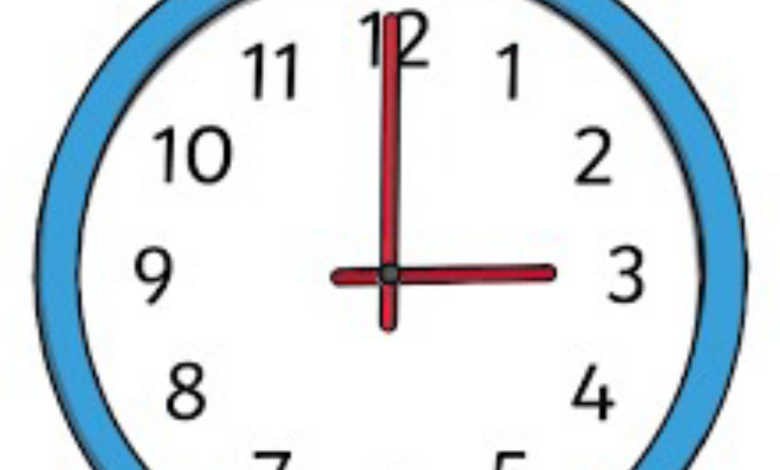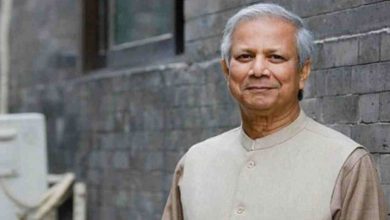What Time Is It? Understanding the Concept of Time

What Time Is It? Understanding the Concept of Time Time is a fundamental aspect of human existence, serving as a reference point for organizing our lives and activities. From scheduling appointments to planning global events, the concept of time governs our daily routines and societal structures. In this article, we delve into the intricacies of time, exploring its various dimensions and significance in different contexts.
Understanding Time
The Concept of Time
Time is a dimension in which events occur sequentially, providing a framework for measuring their duration and order. It is a continuous progression of moments, from the past through the present to the future, allowing us to perceive changes in the universe. What Time Is It? Understanding the Concept of Time
Measurement of Time
Throughout history, humans have devised various methods to measure time, from observing celestial bodies to inventing sophisticated timekeeping devices. These measurements enable us to quantify intervals and establish standards for synchronization.
Different Time Zones
Definition and Explanation
Time zones are geographical regions that observe the same standard time, usually differing by one hour from adjacent zones. They are essential for coordinating activities across diverse locations and accommodating the rotation of the Earth. What Time Is It? Understanding the Concept of Time
Importance in Global Communication
With globalization and interconnectedness, understanding time zones is crucial for effective communication and collaboration on a global scale. Businesses, travelers, and international organizations rely on accurate timekeeping to coordinate activities seamlessly.
Timekeeping Devices
Evolution of Timekeeping
From sundials to atomic clocks, the evolution of timekeeping devices reflects humanity’s quest for precision and reliability. Ancient civilizations developed rudimentary instruments to track the passage of time, paving the way for sophisticated modern clocks and watches. What Time Is It? Understanding the Concept of Time
Modern Timekeeping Devices
In the digital age, we have access to an array of timekeeping devices, including smartphones, computers, and smartwatches. These devices not only display the current time but also offer features such as alarms, timers, and world clocks for enhanced convenience.
Time Standards
UTC and Its Significance
Coordinated Universal Time (UTC) serves as the global standard for timekeeping, based on atomic time scales and international cooperation. It provides a uniform reference for scientific, military, and civilian purposes, ensuring consistency in global communication. What Time Is It? Understanding the Concept of Time
Impact on Global Coordination
The adoption of UTC facilitates synchronization across various sectors, from telecommunications to transportation. It enables accurate scheduling of flights, international meetings, and financial transactions, minimizing confusion and discrepancies.
Daylight Saving Time
Origin and Purpose
Daylight Saving Time (DST) is a practice of advancing clocks during warmer months to extend daylight in the evening. It originated from efforts to conserve energy and promote outdoor activities, with the aim of maximizing daylight hours. What Time Is It? Understanding the Concept of Time
Whats
Time
Is
It?
Understanding
the
Concept
Of time
Controversies and Debates
Despite its intended benefits, DST remains a topic of controversy and debate. Critics argue that it disrupts sleep patterns, has negligible energy savings, and imposes logistical challenges for businesses and individuals.
Cultural Perspectives on Time
Varying Perceptions Across Cultures
Different cultures exhibit diverse attitudes and behaviors regarding time, influenced by historical, social, and environmental factors. While some societies prioritize punctuality and efficiency, others adopt a more relaxed approach to time management. What Time Is It? Understanding the Concept of Time
Influence on Societal Norms
Cultural perceptions of time shape societal norms and expectations regarding work, leisure, and interpersonal relationships. Understanding these cultural differences is essential for effective cross-cultural communication and collaboration.
Time Management
Importance in Personal and Professional Life
Effective time management is essential for achieving goals, maximizing productivity, and maintaining work-life balance. It involves prioritizing tasks, setting realistic deadlines, and minimizing distractions to make the most of available time. What Time Is It? Understanding the Concept of Time
Strategies for Effective Time Management
Various strategies, such as prioritization techniques, time blocking, and delegation, can help individuals enhance their time management skills. By adopting proactive habits and utilizing productivity tools, individuals can optimize their use of time and reduce stress.
Time in Technology
Integration of Time in Technology
Technology plays a pivotal role in timekeeping, with synchronized clocks embedded in various devices and systems. Network time protocols ensure accurate time synchronization across interconnected devices, facilitating seamless communication and data exchange.
Applications in Different Sectors
Time synchronization is crucial in sectors such as telecommunications, finance, and transportation, where timing accuracy is paramount. High-frequency trading, air traffic control, and telecommunications networks rely on precise timekeeping for optimal performance.
Time Travel
Theoretical Possibilities and Limitations
Time travel has long been a subject of fascination and speculation in science fiction and theoretical physics. While various theories propose methods for traversing through time, practical challenges such as causality paradoxes and energy requirements remain significant obstacles.
FAQs (What Time Is It? Understanding the Concept of Time)
Cultural Fascination with Time Travel
The concept of time travel has captured the imagination of writers, filmmakers, and scientists, inspiring countless works of fiction and academic inquiry. It serves as a metaphor for exploring existential questions about fate, free will, and the nature of reality.
Philosophical Notions of Time
Temporal Theories
Philosophers have pondered the nature of time for centuries, debating concepts such as eternalism, presentism, and the block universe theory. These theories offer different perspectives on the ontology and metaphysics of time, challenging our intuitive understanding.
Implications on Human Understanding
Our philosophical conceptions of time shape our worldview and understanding of existence. Whether time is viewed as a linear progression, an illusion, or a fundamental aspect of reality, it influences our perceptions of identity,




One Comment